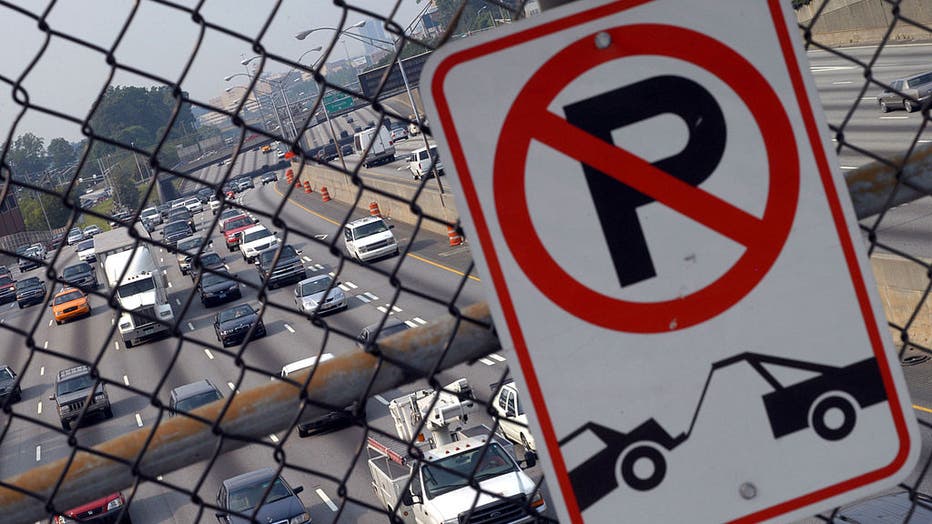Atlanta interchanges are some of the worst traffic bottlenecks in the US, study finds

Atlanta interchanges among worst bottlenecks in US
A new report from the American Transportation Research Institute says that metro Atlanta has three of the top 10 worst interchanges in the country.
ATLANTA - Drivers have complained about Atlanta traffic for years, and a new report says that the metro area has some of the biggest spots of congestion, causing drivers headaches in the entire United States.
The American Transportation Research Institute released its 2025 survey of the worst truck bottlenecks in the country earlier this month.
By the numbers:
The group analyzed hundreds of spots on the national highway system using freight truck GPS data and other information from trucking operations.
Three Atlanta interchanges made the group's top 10 this year.
Spaghetti Junction took fourth place - which is no surprise to anyone trying to brave its traffic during rush hour. Number six is Interstate 75 and Interstate 285 - also known as the Cobb Cloverleaf.

Traffic crawls north out of Atlanta along Interstate 75/85 during rush hour May 9, 2005, in Atlanta. (Photo by Barry Williams/Getty Images)
Taking the 10th spot was Interstate 20 and Interstate 285 on the west wall.
Others in the top 100 included:
- 12: McDonough, I-75
- 14: Atlanta, I-20 at I-285 East
- 29: Atlanta, I-285 at SR 400
- 38: Atlanta, I-20 at I-75/I-85
- 80: Atlanta, I-75 at I-85
- 82: Atlanta, I-75 at I-675
Big picture view:
If traffic in Atlanta can be frustrating, at least we're not in Fort Lee, New Jersey. The survey named the intersection of I-95 and SR 4 near the George Washington Bridge the top freight bottleneck in the country for the seventh year in a row.
Following that was Chicago's I-294 at I290/I-88 and Houston's I-45 at I-69/US 59.
The group's analysis also found that traffic conditions dropped compared to the previous year. In the top 10 locations, the average rush hour truck speed was 29.7 mph.
What they're saying:
"As the Trump Administration and new Congress kick off the process of reauthorizing the federal highway bill, this report provides a precise blueprint on where to begin," American Trucking Association's President and CEO Chris Spear said. "These traffic bottlenecks not only choke our supply chains, adding $109 billion annually to the cost of transporting the everyday goods that Americans depend on, but they also impact the quality of life for all motorists who rely on the national highway system to commute to work, school, church, and other life events. Targeted investments to reduce this traffic congestion are exactly the kinds of projects, with a measurable return on investment, that taxpayers come to expect of their elected officials."
Dig deeper:
You can see the whole list of the worst bottlenecks in the country here.
The Source: Information for this story was taken from a recent report by the American Trucking Association.

